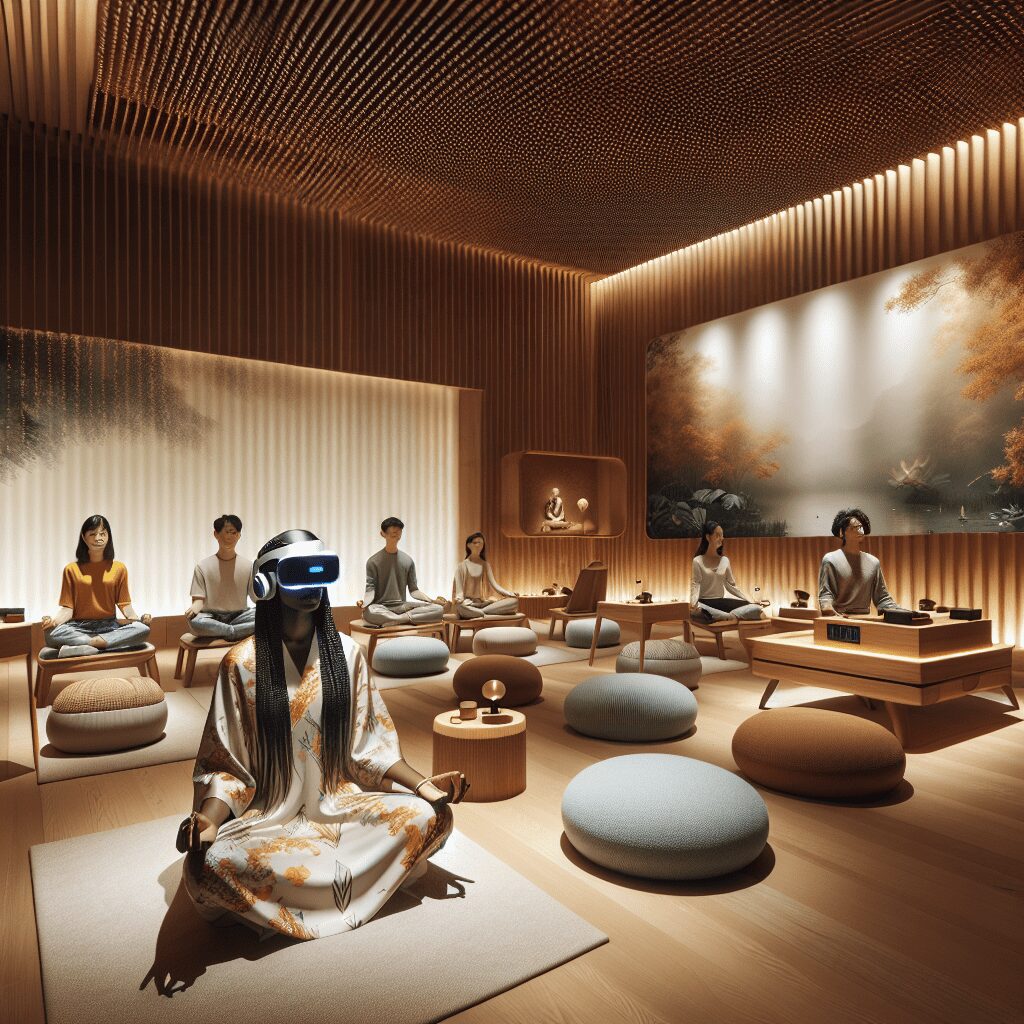
Prioritize your mental well-being daily. Enhance your life by nurturing your mental health with the Smart Meditation app. Break free from stress, alleviate anxiety, and enhance your sleep quality starting today.
Can Anxiety Cause Change In Consciouness?
The Mind-Body Connection: Exploring Anxiety’s Grip on Consciousness
In the intricate dance of mind and body, anxiety often steps on the toes of our consciousness, leading us into a rhythm we’d rather not follow. It’s a question that nibbles at the edges of our awareness: Can anxiety really change our state of consciousness? Delving into this topic isn’t just a dive into the neurological and psychological; it’s an exploration of the very essence of how we experience reality.
When Anxiety Holds the Reins: The Psychological Perspective
Anxiety isn’t just a fleeting feeling; it’s a complex emotional state that can hijack our consciousness, steering it into uncharted territories. Whether it’s the pounding heart of panic or the gnawing worry of generalized anxiety disorder, these states can fundamentally alter our moment-to-moment awareness. But how, you ask?
-
Hyper-vigilance: Ever feel like your senses are on red alert? That’s anxiety’s doing. It sharpens our focus to potential threats, but in doing so, it can narrow our conscious experience. Everything else fades to the background, leaving us trapped in a loop of worry and apprehension.
-
Dissociation and Depersonalization: For some, anxiety doesn’t sharpen; it blurs. Feelings of detachment from oneself or one’s surroundings can emerge, a phenomenon known as dissociation. It’s like being an observer of your own life rather than an active participant—a profound change in consciousness, wouldn’t you say?
-
Memory and Perception Alterations: Ever tried recollecting a period of intense anxiety? It’s like trying to remember a dream from the night before. Anxiety can warp our perception of time and interfere with how we store memories. The result? A consciousness that feels disjointed and out of sync.
The Brain on Anxiety: A Neurological Tango
So, we’ve established that anxiety can lead to some pretty wild changes in consciousness, but what’s going on under the hood? Neuroscience offers some insights:
-
Amygdala Activation: This almond-shaped part of the brain doesn’t miss a beat when it comes to anxiety. It’s involved in processing emotions, and when it goes into overdrive, it can flood our consciousness with fight-or-flight responses. The world suddenly looks a lot scarier through the lens of an activated amygdala.
-
Prefrontal Cortex Puzzles: Responsible for our higher cognitive functions, the prefrontal cortex is supposed to keep the amygdala in check. But throw in a bit of anxiety, and this balance can get knocked out of whack. The result? A consciousness that’s more prone to rumination and worry.
-
Neurotransmitter Tango: Serotonin, norepinephrine, GABA – these are just a few of the neurotransmitters involved in anxiety. Their delicate balance is essential for maintaining a stable state of consciousness. Anxiety can disrupt this balance, leading to changes in how we perceive and interact with the world.
So, What’s the Verdict?
The evidence is clear: anxiety isn’t just a surface-level emotion. It’s a complex state with the power to transform our consciousness, impacting everything from our perceptions to our memory and sense of self. Understanding this transformation is key to finding strategies to manage anxiety, ensuring it doesn’t lead us down a rabbit hole of altered reality.
By embracing a deeper awareness of anxiety’s effects, we can learn to navigate its challenges with greater agility and insight. After all, knowledge is power—especially when it comes to untangling the intricate web of mind, body, and consciousness.





